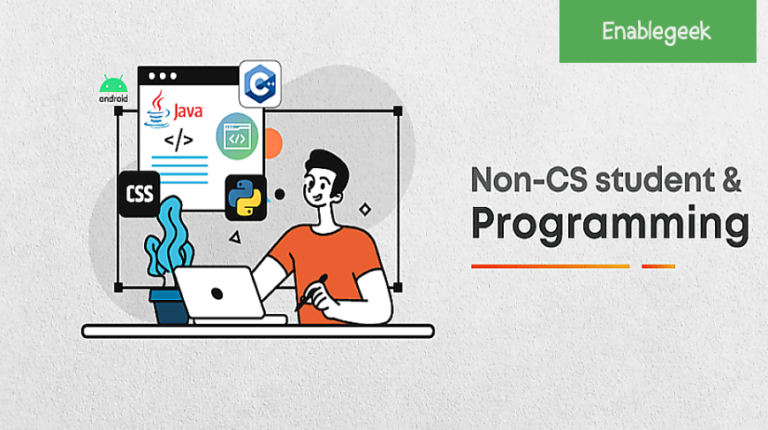Embracing a career in technology without a technical background may seem like a daunting prospect, but as my journey unfolds, it’s proof that the tech industry welcomes diverse talents. Growing up in Silicon Valley, surrounded by the constant hum of innovation, I harbored a reluctance to delve into the technical intricacies that surrounded me.
Raised by a father entrenched in the tech world as a software test engineer, there was an unspoken expectation for me to follow in those coding footsteps. However, I chose a different path, adamant about steering clear of becoming a “technical person.” The realm of computer software, coding, cloud computing, and DevOps seemed like an alien language that I had no interest in deciphering. And if you find yourself nodding along, understanding none of these technical terms, know that you’re not alone – it’s perfectly okay.
Yet, as life unveiled more opportunities, a fascination with the transformative power of technology, particularly Big Data, began to take root. I found myself questioning the future’s implications, both technologically and socio-economically. Despite this newfound interest, self-doubt crept in. Majoring in Business Economics and Political Science at the University of California, Irvine, I grappled with the idea of entering the tech industry.
Overcoming my reservations, I embarked on a journey of networking events, coffee meetings, and encounters with individuals from tech giants like Salesforce, Oracle, Snapchat, Microsoft, and Google. These interactions weren’t about showcasing technical prowess; instead, they were opportunities to learn about diverse roles and skill sets within the tech landscape.

Fast forward to today, and I find myself working at Cloudtrek as a Cloud Sales Executive. While not a technical role in the traditional sense, the exposure has been transformative. Surrounded by an exceptional team, I’ve delved into the realms of IT, data centers, cloud storage, SaaS, IaaS, PaaS, DRaaS, and more. The support and mentorship have been invaluable, challenging me to navigate the intricacies of technology and business operations.
Three months ago, terms like servers, cloud hosting, APIs, CPU, and virtual machines were foreign to me. Today, I’m navigating the tech language daily, engaging with C-Level tech professionals, understanding their IT roadmaps, and evaluating how Cloudtrek’s services align with their goals. Reflecting on this whirlwind experience in a startup environment, I’m astounded by the learning curve and the trust bestowed upon me to wear multiple hats. The journey continues, and I’m eager to embrace every challenge and opportunity that comes my way.
Breaking Stereotypes in the Tech World
Diversity in the tech industry encompasses protected characteristics such as gender, racial identity, sexual orientation, language, and more specialized factors like different thought styles and unique life experiences. Gender diversity remains a significant issue in the tech world, with only 1 in 25 CEOs in Britain’s most well-known companies being women. Ethnic minority women often face a double burden of biases, as they contend with both gender-based stereotypes and racial prejudices.
The tech sector is broadly embracing neurodivergent individuals who bring fresh perspectives and problem-solving skills. The Tech Talent Charter reports that 53% of organizations are now measuring it, which is double the number from the previous year. However, more still needs to be done.

Diversity is crucial in the workplace because it brings together individuals with unique backgrounds, perspectives, and experiences, fostering a rich and progressive environment. A diverse workforce reflects the real world, representing different cultures, genders, ages, ethnicities, abilities, and more. Steps the tech industry should take to recruit and retain a more diverse workforce include targeted recruitment efforts, educational outreach initiatives, mentorship programs, equal pay, flexible working arrangements, ethnic diversity, ex-offenders diversity, and neurodivergent diversity.
To sum up, diversity in the tech sector is about more than just checking boxes; it’s about fostering creativity, releasing innovation, and creating a future in which technology genuinely benefits everyone. It takes a team to embrace diversity in the IT sector, and every move in the right direction leads to a more inventive and just future.
Non-Tech Professionals Thriving in Tech Roles
In the current digital era, technology is the driving force behind practically every industry; non-tech businesses cannot afford to fall behind. Businesses in a variety of sectors need to strengthen their tech skills because there is a need for tech expertise that goes well beyond the tech sector. It might be difficult to hire tech talent for non-tech firms, but the secret to success is knowing what particular abilities and traits are important for your organization’s objectives and culture.

One approach is to focus on transferable skills, such as problem-solving abilities, adaptability, and a knack for learning new technologies quickly. These individuals may come from diverse backgrounds such as engineering or mathematics and can bring valuable perspectives to your team. Another strategy is to create an attractive work environment that appeals to tech professionals, offering benefits like flexible work hours, remote options, and professional development opportunities. Emphasize the impact they could make by bringing their technical expertise into a non-tech setting.

Non-tech companies face several challenges when trying to attract and hire tech talent: competition, limited tech expertise, cultural fit, competitive salaries and benefits, and recruitment process length. To overcome these challenges and effectively recruit tech talent, non-tech companies should consider strategies such as clearly defining roles and expectations, offering competitive compensation, developing a strong employer brand, using employee referrals, collaborating with tech communities, leveraging recruitment agencies, assessing soft skills, streamlining the hiring process, offering professional development, onboarding and integration, investing in training, and continuously measuring and adjusting the success of their tech hiring strategy.
Navigating Non-Tech Roles in the Tech Ecosystem
The tech industry employs various non-technical roles such as Virtual Assistants, Technical Writers, Community Managers, Legal Professionals, Product Marketing Managers, Sales Development Representatives, and Customer Success Managers, requiring strong organizational skills, communication, and attention to detail.
Community Managers foster tech companies’ online communities, requiring excellent communication, interpersonal skills, empathy, and technical proficiency in documentation tools, HTML, CSS, and content management systems. Legal professionals are crucial in the tech industry, ensuring compliance with laws, protecting intellectual property, and managing risks through advice, contract drafting, and negotiating agreements.

Product Marketing Managers develop and execute marketing plans for new products and services, collaborating with product managers, engineers, and designers. They require technical skills in marketing tools, digital marketing, data analysis, and market research. Sales Development Representatives identify and qualify customers, while Customer Success Managers maintain customer relationships. Non-technical roles in the tech industry require soft skills and technical skills.

Human Resources Specialists manage HR functions like recruitment, hiring, and training, with strong communication, organizational, and multitasking skills. Finance Managers manage tech company finances, ensuring stability and strategic decisions. They have strong analytical, problem-solving, and communication skills, proficiency in financial management software, and financial modeling techniques.
Content Managers create and manage tech company content strategies, utilizing strong writing, editing, and collaboration skills. Research Analysts gather and analyze data for decision-making, conducting market research, and product development. Social Media Specialists manage a company’s social media presence, creating and curating content, monitoring trends, and optimizing performance metrics.
Upskilling for Non-Tech Professionals
Tech skills are crucial for success in various industries, including sales, real estate, marketing, education, and healthcare. The rapid evolution of technology has led to an increased demand for skilled professionals who can use new technologies. Learning about UX/UI design and data analysis can give you a competitive edge in your field.

Tech skills are important for job opportunities, increased productivity and problem-solving skills, better time management and efficiency, and improved cybersecurity. As tech advances, so do cybersecurity threats, making it essential to be comfortable with technology to handle potential threats before they become issues.
For non-tech professionals, five key tech skills can be mastered: programming, low-code platforms, UX/UI design, data analysis, and data visualization. Programming helps understand project lifecycles and develop abstract thinking skills.

Low-code platforms offer an alternative to modern software development tools, allowing you to take on more tasks without dedicating too much time to studying new skills. UX/UI design involves understanding user needs and preferences, which is essential for selling products or services. Data analysis involves collecting and organizing data to understand users’ preferences and needs, and data visualization allows you to communicate that data effectively to your team.
Learning new tech skills offers unmatched benefits for any role or career goal, allowing you to reach heights you never thought were possible. Ironhack’s boot camps are the best place to start learning new skills and embracing the challenges of the tech industry.
Non-Tech Entrepreneurs Shaping Tech Startups
Entrepreneurs and non-tech startups need to understand the costs and potential of the tech industry to succeed. To do this, entrepreneurs should settle on their decision and claim it, become familiar with the basics, understand the difference between the back end and front end, hire a trustworthy CTO, and gain from one another.

- Decide on your career path and claim it. Many investors favor start-up teams driven by engineers, so entrepreneurs should not feel remorseful if they don’t write great code.
- Familiarize yourself with the basics of coding and see how the innovation works. Utilize resources like Stanford University’s Computer Science 101 course to learn more about coding.
- Understand the difference between the back end and front end of a platform. Realizing how to write code and what parts you need to manufacture a platform is not the same as the ideation that goes into the process.
- Hire a CTO you can trust. A CTO who is skilled and ready to clarify in layman’s terms is essential for non-technical entrepreneurs.
- Gain from one another. CTOs are not only skilled at coding but also have business insight and can understand how their product helps the client.
Non-technical founders can lead successful tech startups by evaluating their product’s current state, attracting users, and gathering feedback. Focus on building a tech team, hiring necessary engineers, and constantly contributing value. Initially, be a jack of all trades, but as the company scales, become an industry expert or charismatic leader.
Inclusive Company Cultures
The IT industry is increasingly prioritizing diversity and inclusion in recruitment and hiring strategies, but there is still work to be done. Studies show that women are underrepresented and there is a lack of diversity in ethnicity, age, and disability. Diversity in the tech industry is crucial for moral and business reasons, as it allows companies to better understand their consumers and end-users. A diversified workforce leads to greater creativity, a wider range of skill sets, and more options for solving business challenges.

A lack of diversity in tech can contribute to negative customer experiences, such as when AI fails to recognize customers with darker skin tones. To prevent overlooking the blind spots in tech invention and development, businesses need to encourage more people from diverse backgrounds to enter technological professions.
Businesses should showcase a diverse workforce in marketing materials and include case studies of flexible working. They should avoid sweeping statements and provide specific examples. Job adverts should be attractive, gender-neutral, and promote flexibility. The culture should be inclusive, with platforms recruiting from underrepresented groups.
To prevent unconscious bias during interviews, use competency-based questions and panel decisions. Companies should adjust recruitment methods to increase diversity in the tech industry. Hiring managers should actively attract diverse candidates. Promoting initiatives and partnering with organizations that support diverse IT talent can bridge recruitment gaps. A diverse workforce leads to innovation, a broader talent pool, and better market capture.

Inclusive recruitment attracts diverse candidates, resulting in a larger talent pool. Investing in tools to source qualified candidates from all backgrounds fosters an open, adventurous workplace culture. Diverse companies are 70% more likely to capture new markets and attract customers, making inclusion and a culture of belonging crucial for tech industry success.
Resources for Non-Tech Professionals
Non-tech professionals can enhance their skills and career growth through various online learning platforms, coding boot camps, networking events, and mentorship programs. Coursera, Udacity, and LinkedIn Learning offer courses covering essential tech concepts, project management, and industry-specific skills. Specialized tech courses, such as Codecademy and freeCodeCamp, are designed for beginners from non-tech backgrounds. Coding boot camps, like General Assembly, Le Wagon, and Flatiron School, offer intensive and immersive programs. Attending tech meetups and conferences, professional organizations, and networking platforms like LinkedIn can provide networking opportunities.

Recommended books and reading materials for non-tech professionals include “The Lean Startup” by Eric Ries, “Sprint” by Jake Knapp, “The Innovators” by Walter Isaacson, “JavaScript & JQuery” by Jon Duckett, and “Python Crash Course” by Eric Matthes. Soft skills development books like “Crucial Conversations” and “Drive” offer insights into effective communication and motivation in a professional setting.
Tech mentorship platforms, company-specific programs, and industry networking events can provide mentorship opportunities. Online communities and forums, social media groups, and community learning platforms can also help non-tech professionals connect and learn together. By strategically leveraging these resources, non-tech professionals can contribute meaningfully to the tech landscape and thrive in roles beyond their traditional domains.

In the vast landscape of the tech industry, the integration of non-tech backgrounds isn’t merely a matter of tolerance; it’s an essential and indispensable narrative shaping a future characterized by diversity and inclusivity. The journey of individuals, hailing from diverse disciplines, venturing into the tech realm is a testament to resilience, innovation, and a redefinition of industry norms.
As we wrap up this exploration, the once-clear demarcation between tech and non-tech is dissolving, paving the way for an industry that embraces inclusivity, dynamism, and creativity. The thriving tech ecosystem finds its true strength in the interweaving of diverse talents, varied perspectives, and a tapestry of experiences. Non-tech professionals aren’t merely adapting to the tech world; they are the architects of its transformation, actively shaping its evolution and expanding the horizons of what can be achieved.
This comprehensive guide, replete with stories, insights, and resources, is designed to embolden non-tech professionals who aspire to leave an indelible mark in the tech industry. Whether your passion lies in product management, UX/UI design, data analysis, or technical writing, the opportunities are vast and inviting. The tech industry of tomorrow is one where individuals, irrespective of their academic background, discover their niche, carve out unique paths, and contribute significantly to the ever-evolving realm of technology. The narrative is no longer one of exclusion but of empowerment, as we usher in an era where everyone has the space to find purpose and meaning in the exciting world of tech.






